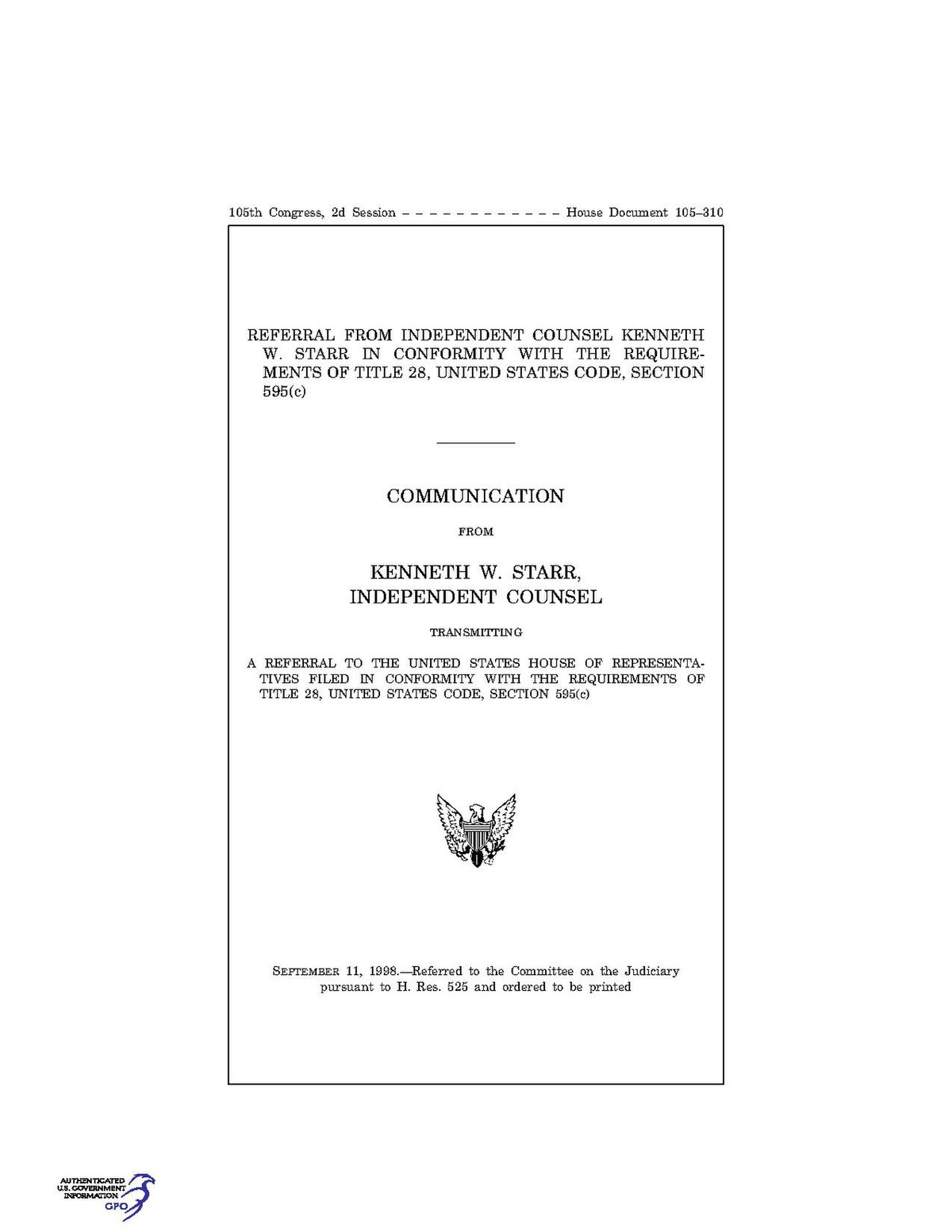Show where he LIED, though
thought so...

en.wikipedia.org
At the time it was released, the report was criticized for making accusations about exactly what Clinton did.
[9] The report claimed "the details are crucial to an informed evaluation of the testimony, the credibility of witnesses, and the reliability of other evidence. Many of the details reveal highly personal information; many are sexually explicit. This is unfortunate, but it is essential."
[9] Because Starr's office allegedly leaked portions to press about sexual details that were mentioned in his report, he was criticized for using the scandal as a political maneuver
[10][11] and was charged for violating legal ethics by presenting information irrelevant to an investigation as evidence of legal wrongdoing.
[10][11] Also, it is unclear whether Starr had the legal authority to ask Clinton questions about his sexual relationship with Lewinsky, as the OIC was convened solely to investigate Whitewater and Paula Jones' claim that Clinton sexually harassed her. Questioning about a sexual relationship void of assault appears to be both irrelevant under the Federal Rules of Evidence (FRE) as a whole and under Rule 413, which allows questioning about separate allegations of sexual assault (which was never asserted about Lewinsky's relationship with Clinton).
[12]
In January 2020, while testifying as a defense lawyer for U.S. President
Donald Trump during
his Senate impeachment trial, Starr himself would retract some of the allegations he made in the report.
[13] Slate journalist Jeremy Stahl pointed out that as he was urging the Senate not to remove Trump as president, Starr contradicted various arguments he used in 1998 to justify Clinton's impeachment.
[13] In defending Trump, Starr also claimed he was wrong to have called for impeachment against Clinton for abuse of executive privilege and efforts to obstruct Congress and also stated that the House Judiciary Committee was right in 1998 to have rejected one of the planks for impeachment he had advocated for.
[13] He also invoked a 1999 Hofstra Law Review article by Yale law professor
Akhil Amar, who argued that the Clinton impeachment proved just how impeachment and removal causes "grave disruption" to a national election.
[13]


